 I was so inspired listening to Dale Carnegie’s audio book How to win friends and influence people that I hardly know here to begin to make a summary of it.
I was so inspired listening to Dale Carnegie’s audio book How to win friends and influence people that I hardly know here to begin to make a summary of it.
I listened to it at between 1.5x and 2x speed, so I can still hear the sound of the reader, who was trying to sound like he was from the 1930’s but with an added chipmunk kind of tone.
I am going to focus on 5 immediately actionable takeaways, along with juicy quotes and share links to more lengthy recaps from others.
- Take an honest interest in others
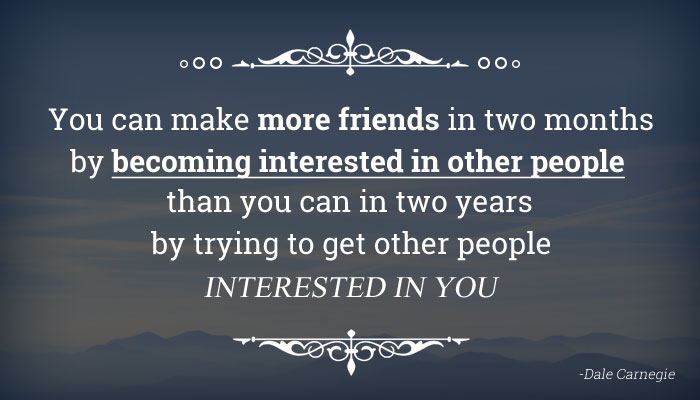
As a salesperson, I come prepared. Perhaps too prepared. I have been answering the objections of prospects for over 20 years. I have PowerPoint presentations, a litany of credentials and plenty of energy to share how I can help companies with digital marketing.
Ironically, the secret weapon that Dale Carnegie shares has very little to do with us and our qualifications. It has more to do with how much we honestly care about and listen to others.
If you want to be influential, spend a lot more time talking about people’s likes and interests than merely selling them. Sure, you have to get down to business and show them your stuff but if that is all you do, you will soon be forgotten.
It may only take one small comment such as appreciating a photo on their desk of their family or fishing trip or perhaps the unique artwork on their walls, to start a conversation that builds a friendship. This can open the door for sales and influence opportunities far greater than hammering them with details.
My father, who owned a large advertising agency and sold numerous 100 million dollar accounts, told me a dozen times that I must show interest in a prospect or clients “baby pictures” more than my own. He is like a broken record about how important the relationship is and so is Dale Carnegie. The best influencers live by this and not only get more clients but make many friends along the way.
Just this morning, I heard Donald Trump on the news say that the relationship is key when negotiating. He said that just by looking at Obama and Vladimir Putin together and seeing the lack of chemistry, he can tell that good deals are just not going to happen.
Taking a good hard look at myself, I know I can do better now that I know how important this technique is.
One actionable way you can show interest in others on your website is to use the words “You” far more than “We”. Speaking as if in a conversation to your readers will make them feel welcome, while only hitting them with “We do this or our brand does that” can be a turn off.
- People respond better to sweetness than bitterness
Abraham Lincoln said that “A drop of honey catches more flies than a gallon of gall. So with men. If you would win a man to your cause, first convince him that you are his sincere friend. Therein is a drop of honey which catches his heart, which, say what he will, is the highroad to his reason.”
Dale Carnegie used extensive examples to illustrate how people successfully won the hearts of those they were trying to influence through kindness and not through arguments.
Dale Carnegie also says, “You can’t win an argument. You can’t because if you lose it, you lose it; and if you win it, you lose it.”
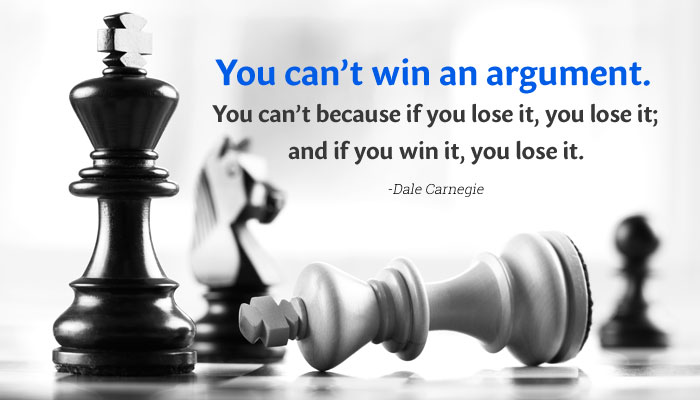
Criticizing others rarely adds value and even if you know someone is wrong, avoid directly saying it. Don’t push people to lose face, rather empathize with them sweetly and they will much more likely be on your side when asking them to do things or delegating to them.
- Give honest and sincere (specific) appreciation
Emphasize people’s positives rather than negatives and they will do more for you.
Charles Schwab put it this way: “I consider my ability to arouse enthusiasm among my people the greatest asset I possess, and the way to develop the best that is in a person is by appreciation and encouragement.
There is nothing else that so kills the ambitions of a person as criticism from superiors. I never criticize anyone. I believe in giving a person incentive to work. So I am anxious to praise but loath to find fault. If I like anything, I am hearty in my appreciation and lavish in my praise”
Just make sure your appreciation is heartfelt. Dale ads: “The difference between appreciation and flattery? That is simple. One is sincere and the other insincere. One comes from the heart out; the other from the teeth out. One is unselfish; the other selfish. One is universally admired; the other universally condemned.”
And he also says that “Any fool can criticize, condemn, and complain but it takes character and self control to be understanding and forgiving.”
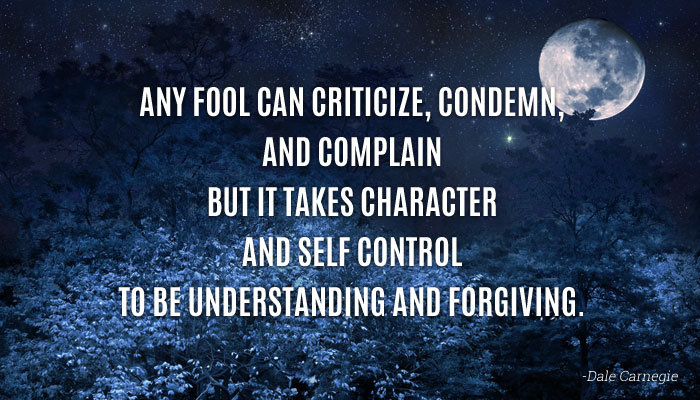
People also desire to have stature and a role. They often like the work itself more than the money and so giving them a clear title that helps them feel important, goes a long way in motivating them personally and for your company.
- Begin by emphasizing the things on which you agree (small yes’s help)
Carnegie says that you should “Begin by emphasizing and keep on emphasizing the things on which you agree”. This concept dates back to Socrates.
The Socratic Method relies on posing your point of view as questions, so that the person must ponder and answer. If you lead with very small questions which you know they will answer yes to, you can start them gently down the road to seeing things your way in a non-argumentative manner.
I recently went to the Michael Port Book Yourself Solid conference in Savanah Georgia. At the conference, we did a small group breakout session where we were asked to do the following exercise:
Tell each other what your upcoming goals are when you get back from the conference and the steps you are going to take to achieve them. Then, your peers, instead of giving you advice, will pose a series of questions aimed at helping you discover the answers on your own.
It dawned on me that this could be used in sales calls and meetings, when conversations are not going my way.
I have studied question-based selling a bit over the years but somehow this felt a little bit different and more like a psychology session.
I had a sales meeting shortly after the workshop, where my prospect was just not responding well to my answers regarding his objections. It was very clear what their problem was and I was 100% certain that my answers were not only accurate but I had over a decade of proof, solving exactly the same problem for other clients.
Regardless, this person just kept on questioning what I was saying and so instead of responding with statements or advice, I started posing a series of questions. Within minutes, the prospect had various revelations that prompted him to tell me he would be sending the signed contract shortly. An hour later I had a fax with a signature.
I may have been able to close the sale with my normal routines and sharing of knowledge, but I’ll never forget how quickly this one turned around when I started to get small yes’s from a series of simple questions. Thanks Dale, Michael Port and Socrates!
- Show respect for the other person’s opinions and see things from their perspective
“If there is any one secret of success, it lies in the ability to get the other person’s point of view and see things from his angle as well as your own.” – Henry Ford
It’s easy to get wrapped up in our own needs during the sales process. I recently had a salesperson tell me that it would be great if I could get started today because it would help them meet their quota. Needless to say, that didn’t inspire me to sign up.
What they could have said instead was something along the lines of: “You mentioned that it was important for you to have a better email marketing program for your client in place before the holidays began. If we can get started today, we would be happy to do the training immediately and help you both meet your goals.”
It is important for you to try and imagine yourself in the shoes of the other person. If you can even remotely envision the position they are in and the obstacles that are important for them to overcome, you’re one step closer to being aligned.
Conclusion
The likes of Warren Buffet have not only studied but credit Dale Carnegie’s How to win friends and influence people to changing their lives. If you are looking to be an influential thought leader and persuasive authority, it needs to be on your reading list.
There are so many additional great things to learn from it, such as smiling more and using people’s name frequently (because it is the sweetest sound in any language) that this post could easily turn into a book.
Below are a couple links to more detailed summaries and a few more How to win friends and influence people quotes:
- “It isn’t what you have or who you are or where you are or what you are doing that makes you happy or unhappy. It is what you think about it.”
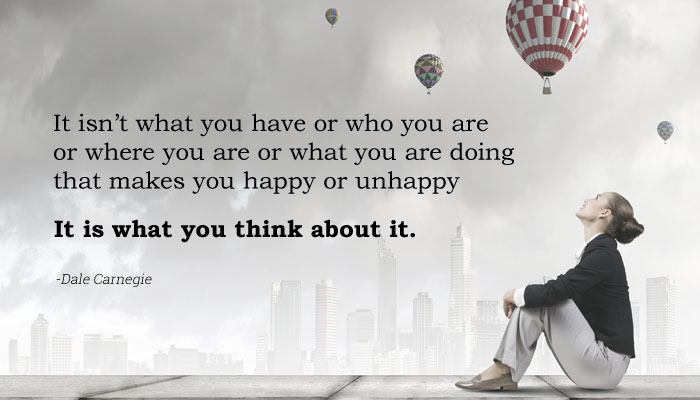
- “Develop success from failures. Discouragement and failure are two of the surest stepping stones to success.”
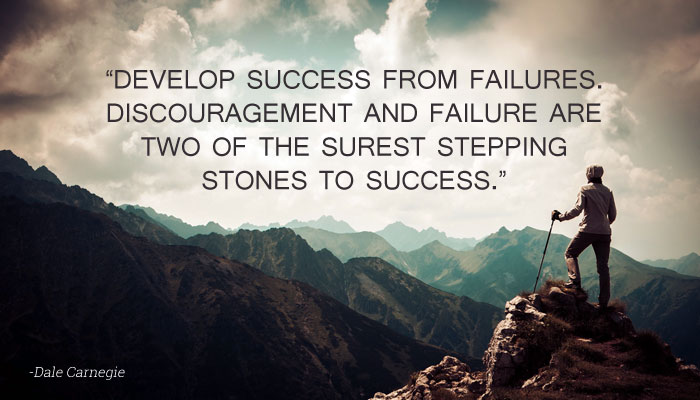
- “Don’t be afraid of enemies who attack you. Be afraid of the friends who flatter you.”
What are some of your favorite Dale Carnegie quotes?
